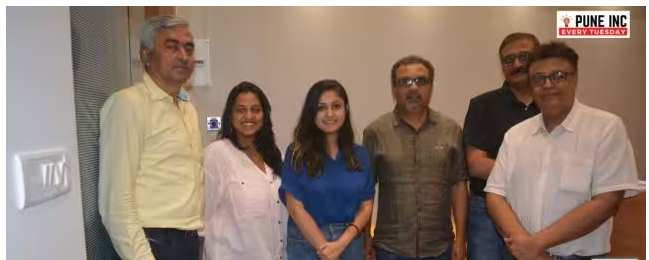EcoBio Group’s Eco BioTrap was deployed by the Mumbai civic body earlier this year at Dharavi. The ONGC Foundation is set to use it to protect 75 anganwadis.
Earlier this year, the Brihanmumbai Municipal Corporation (BMC) decided to adopt a new device named Eco BioTrap to tackle the menace of mosquitoes in Mumbai’s Dharavi, the largest slum in Asia. Made by a Pune social startup, EcoBio Group, Eco BioTrap aims to help control vector-borne diseases such as malaria, dengue and chikungunya.
An Eco BioTrap is shaped like a bucket or a pot. It requires users to pour water into it and place it in areas infested with mosquitoes. Over the next few days, an attractant contained in the device will target female mosquitoes by mimicking their breeding ground. Once the eggs are laid, an IGR, an insecticide that is approved by the government and the World Health Organization (WHO), will ensure that no adult mosquito emerges, thus breaking the chain of mosquito breeding.
The problem of mosquitoes is becoming acute across the world. The WHO estimates that about half of the global population is vulnerable to dengue, with around 100–400 million infections being recorded each year. According to WHO’s World Malaria Report 2021, “there were an estimated 241 million malaria cases and 627,000 malaria deaths worldwide in 2020. This represents about 14 million more cases in 2020 compared to 2019, and 69,000 more deaths. Approximately two-thirds of these additional deaths (47,000) were linked to disruptions in the provision of malaria prevention, diagnosis and treatment during the pandemic”. India accounted for 1.7 per cent of global malaria cases and 1.2 per cent of global malaria deaths.
“We have sent missions to the Moon and Mars and are living in the world of artificial intelligence but have not yet been able to solve the problems of dengue and malaria,” says Prasad Phadke, the CEO of EcoBio Group. “The trap yielded good results at Dharavi as it is user-friendly as well as safe for the environment. One more plus point of Eco BioTrap is that, unlike other devices used for the prevention of mosquito breeding, it does not require electricity,” he adds.
According to Phadke, the company delved deep into the science of mosquito breeding while creating Eco BioTraps. For one, the traps are made of recycled corrugated boxes – of the kind that e-commerce companies use to deliver products. “This is the same material that is used for egg trays. An egg tray cannot hold water for a second. But, Eco BioTraps can hold water for four to six weeks. Inside the trap is a sachet containing the attractant and the insecticide. After adding water, the action begins. The attractant will ensure that the female mosquito will come and lay eggs in the Eco BioTrap, not any other waterbody,” says Phadke. The insecticide will ensure that no egg turns into adult mosquitoes. Each trap can help secure a distance of 400 sq ft, is biodegradable, and emits no toxic fumes.
Today, mosquitoes can be found at the foothills of the Himalayas in Nepal and in the picturesque locales of France. Peru has registered a record number of dengue cases this year. Experts warn that the menace is spreading and will get worse with climate change. “We are keeping humans at the centre of attention as we try to solve the problem in an innovative way,” says Phadke.
The startup has received support and funds from CSR initiatives such as ICICI Foundation, for the Dharavi deployment, and ONGC Foundation, which has announced a partnership with them to safeguard 75 anganwadis from mosquito-borne diseases. The enterprise has been incubated under the ‘Society for Mumbai Incubation Lab to Entrepreneurship’, an initiative of the Municipal Corporation of Greater Mumbai, and the Greenr Sustainability Accelerator, an initiative of the non-profit TechnoServe. Eco BioTrap is available on Amazon as well as India’s top pest control operator, PCI. “PCI has 1,000 branches across the country across 21 states. That is the scalability of our product,” says Phadke.
Article Credits: Indian Express
